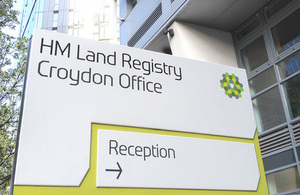Identifying phishing emails
Some information to help you identify fake emails claiming to be from ourselves.

We are aware that there are a number of emails being sent at the moment that claim to be from us.
These phishing emails are made to look like a standard email that we send to our business customers who purchase services from us via a variable direct debit account.
The emails also include an attachment and have an added instruction asking the recipient to open that attachment. The content of this attachment may change, but in each case it has contained a virus.
An example of one of the phishing emails:
From: auto-notification@landregistry.gov.uk Subject: Notification of direct debit of fees
Notification Number: 2581462
Mandate Number: LND2581462
THIS IS AN AUTO NOTIFICATION EMAIL. DO NOT REPLY TO THE SENDER OF THIS EMAIL. IF YOU HAVE A QUERY PLEASE REFER TO THE INFORMATION BELOW
This is notification that Land Registry will debit 1315.00 GBP from your nominated account on or as soon as possible before 23/02/2015.
Details of fees that we shall be collecting by direct debit for the applications charged are now available to view.
You can access these by opening attached report.
If you have an enquiry relating to your VDD account please contact Customer Support at customersupport@landregistry.gsi.gov.uk or call on 0844 892 1111.
For all enquiries, please quote your key number.
Thank you,
Land Registry
We will only send this kind of email to you if you are already signed up for services from us - however, they never contain an attachment. If you receive an email like this and you are not expecting it, it will be a phishing email. You can forward phishing emails to phishing@landregistry.gov.uk. You will not receive a response, but we will examine your email
For more information on this and what other steps you can take, please see our blog about phishing emails.